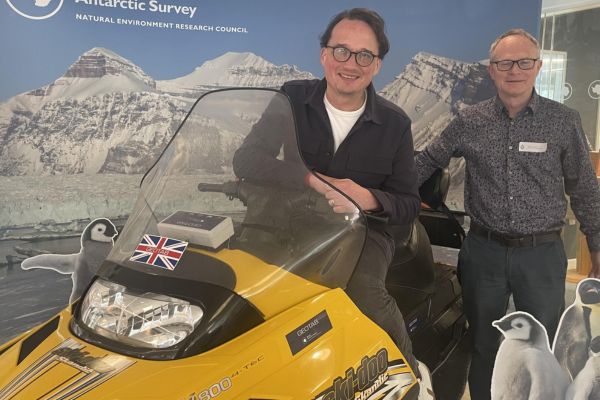 |
In March Adam Clarke, our Net Zero Carbon Programme Manager, and Pete Brotherton, Diocesan Environment Officer, spent two days with their peers from dioceses across the country at the national church’s annual Connect Conference, which aimed to equip and inspire those whose roles focus on care for God’s creation.
This year the conference took place in Cambridge, at the British Antarctic Survey (BAS); a world-leading centre for polar science and polar exploration. The conference was opened by the Rt Revd Graham Usher, Bishop of Norwich and Church of England Lead Bishop for the environment, who reminded attendees of the centrality of caring for creation to the mission of the Church both in England and globally. The conference was packed with inspiring and practical sessions ranging from ‘Climate Action is Mission: Ensuring our net zero work is set within the wider mission of the church’ to ‘Myth-busting heating options for churches.’
On returning from the conference Pete said: “Being at the British Antarctic Survey gave the conference a real wow factor and learning about its environmental research was incredibly motivating, albeit sobering given the scale of the challenge. Recurring themes included the value of networks, and the importance of Eco Church in providing a framework to support parishes on their environmental journey while also celebrating achievements. Adam and I will be reflecting on how we can better support parishes to grow the number of churches in the Diocese with bronze, silver and gold awards.”
Adam said “For me, the conference particularly underscored the vital importance of the Energy Footprint Tool and its ability to provide baseline information that will inform a parish’s net zero carbon journey. I know that both Pete and I left the conference thinking about how best to bring together busy parishes, that are high energy users, as a peer network, to strive as one to protect, improve and sustain our environment. We were enthused by the expertise present and hope that, through some of the conversations we had, we were able to give food for thought too.”
Find out more about Eco Church here
Further information on the Energy Footprint Tool is available here